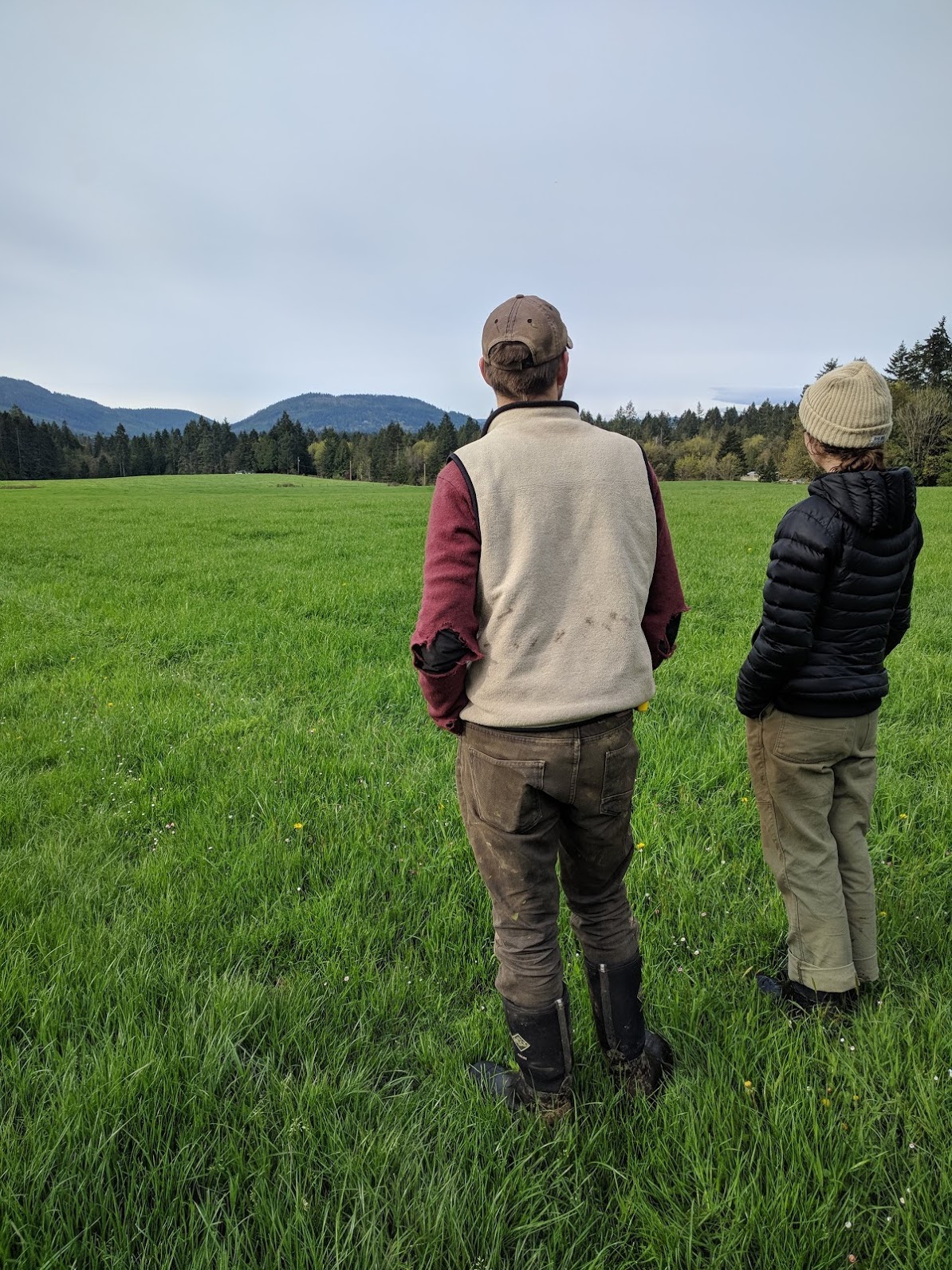
Project Leads: Dr. Kira Borden and Amy Norgaard
Project Type: Organic Cluster III research project
Principal Investigator: Dr. Sean Smukler
Project Partners:
- UBC Farm
- Greenfire Farm
- AAFC
Project Funding:
- Organic Science Cluster 3 under the AgriScience program of Agriculture and Agri-Food Canada
- Mitacs Career Connect
- A generous gift from an anonymous donor
Project Resources
- Nutrient Management Reference Guide
- Winter 2020 Regional Field Trial Farmer Reports
- Organic BC podcast episode UBC field trials: Balancing nitrogen and phosphorus on organic farms, March 7, 2022
A video presentation of finding presented at the SAL Lab Soil Management Workshop in March 2022 can be viewed here.
A video presentation of findings presented at the Canadian Society of Soil Science Conference in June 2021 can be viewed here.
Overview
Composts are a rich source of organic matter and nutrients and are widely used in organic agriculture to improve crop yields and soil health. Primary nutrients, namely Nitrogen (N) and Phosphorus (P), are essential for normal growth and development of all plants. However, the amount of these nutrients supplied by composts can vary significantly based on the feedstock used for composting, and crop requirements for these nutrients are high but variable across mixed organic vegetable farms. High compost applications to meet crop demand may lead to excess nutrients being leached from the system, and subsequent contamination of ground and surface waters. Therefore, it is important to apply composts at rates that will meet crop nutrient demand.
Research Questions
Our overarching research question is:
What strategies can organic, mixed vegetable farms in BC use to manage nutrients more effectively?
Our specific research questions are:
- What combinations of organic amendments (compost, cover crop, fertilizer, etc.) are most likely to meet crop demands?
- How can nutrient cycles in organic farming systems be modeled more accurately to help producers choose nutrient strategies that will meet crop demands using available organic nutrient sources (compost, cover crop, fertilizer, etc.)?
- What are the tradeoffs of these strategies in terms of economics, yield, and the environment?
Project Sites
Our research at the UBC Farm is aimed at evaluating different nutrient management strategies optimized to meet crop uptake and their effect on crop yield, soil quality, and greenhouse gas emissions. This project has two different field experiments:
Experimental Research Sites
- At two locations: UBC Farm and Green Fire Farm
- Trialling four nutrient management options: 1. Typical farm application, 2. Compost only, 3. Compost + fertilizer and a control, no amendments added
On-Farm Regional Field Trials
- On 19 vegetable farms (16 certified organic, 3 transitional or considering certification)
- Considers variability of soil types and climates, in three regions: Pemberton Valley, Vancouver Island and the lower Fraser Valley
- Trialling three nutrient management options: 1. Typical farm application, 2. Compost only, and 3. Compost + fertilizer
Project Results
Experimental Research Site + Lab Results Expected Results – Anticipated Fall 2021
- Improved nutrient management strategies identified for enhanced production, environmental, and economic outcomes.
- Four different nutrient management strategies compared in replicated experimental field trials in two locations
- Decomposition and nitrogen mineralization rates established for cover crops and soil amendments using laboratory incubations.
- A spectral library developed for the rapid, low-cost nutrient analysis of cover crops and soil amendments using mid-infrared spectroscopy.
- Refinement of models used for estimating plant available nitrogen.
- Development of a module for effective organic nutrient management planning in the LiteFarm app.
Regional Field Trial Results:
-
- Final results from the regional field trials are summarized in the Winter 2020 Regional Field Trial Farmer Reports
- Key findings from this project were shared at on online workshop, UBC Field Trials: Organic vegetable nutrient management
- OrganicBC produced podcasts about this project (below):
The following students (listed alphabetically by last name) have assisted with this project:



